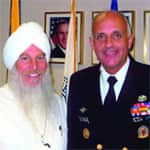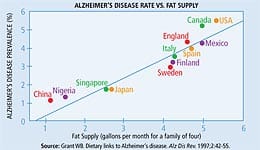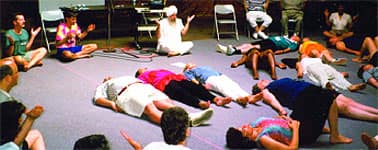Life Extension Magazine®
Q: I just turned 50 and have begun to notice that I forget people’s last names or the names of places I’ve been. I eventually recall the names, but sometimes it takes me awhile. The rest of my thinking seems clear and logical. Am I experiencing a precursor to Alzheimer’s disease? What can I do to retain this part of my memory? Do you have any suggestions for supplements I might take or exercises I might do to maintain my cognitive abilities? People with MCI have dense, short-term memory loss. They can usually balance a checkbook easily or complete their everyday work, and they have normal personalities. Their memory loss is so bad, however, that as my good friend Dr. Shah from the Mayo Clinic says, “They come into the office and can’t find their way back to the parking lot.” Contrary to popular belief, degenerative memory loss is not inevitable, nor does it have to worsen or develop into Alzheimer’s disease. Although MCI has been known to progress into Alzheimer’s at a rate of 10-15% per year, the good news is that there are excellent treatments available. However, the first thing to realize is that there is no one-drug, magic-bullet approach to preventing and treating Alzheimer’s disease. Instead, an integrative strategy may offer the greatest potential for maintaining cognitive function with aging.
When I testified before Congress in May 2003, I discussed integrative medicine. To illustrate this concept, I asked the legislators to imagine two rivers: a river on the left as conventional medicine, including drugs and surgery, and a river on the right as alternative, or complementary, medicine, consisting primarily of treatments people can apply themselves. Examples of alternative or complementary medicine include nutrition, supplements, stress-management techniques such as yoga and meditation, and exercise. The tremendous healing power of integrative medicine manifests where these two rivers converge. The reason an integrated medical program works is simple: the brain is flesh and blood, just like the rest of the body. Like your heart or any other part of your body, your brain requires the proper nutrition, blood flow, and energy to perform well. Simply put, “What works for the heart, works for the head” (with some modifications, of course). Therefore, to prevent and treat memory loss, I created my Better Memory Program™, based on the following four pillars:
Diet and SupplementsAn important research project illustrates the negative effects on the brain of a diet high in saturated fat. William Grant, PhD, discovered that countries with the highest intake of saturated fat and calories also had the highest incidences of Alzheimer’s disease. By contrast, Asian countries, which had the lowest intake of saturated fat, also had the lowest incidences of the disease. Therefore, when creating your menu, it is very important to include a balanced diet rich in fruits and vegetables and low in trans and saturated fats, such as those found in processed foods and red meat. Recent studies have also shown that eating soy may help prevent memory decline. My Better Memory Diet™ recommends eating five to seven servings of fresh (preferably organic) fruits and vegetables each day, along with sources of protein that contain little or no trans and saturated fats but are rich in omega-3 fatty acids, such as wild Alaskan salmon. Unfortunately, due to widespread mercury contamination, we must be both cautious and selective about which fish we consume. Omega-3 fatty acids are “good fats” needed by your brain to function well. Your brain does not need trans and saturated fats, otherwise known as “bad fats.” Because most people cannot get enough of their required daily nutrients from dietary sources, it is important for everyone to take a high-potency multi-vitamin. Additionally, the following memory-specific nutrients may be helpful for many people:
In your particular case, I would suggest:
Also very useful for your type of symptoms are anti-aging and energy-boosting nutrients such as:
Other memory-supporting nutritional supplements to consider are huperzine-A and vinpocetine, though I usually reserve those for people with more severe symptoms of memory loss than what you describe. Stress ManagementIt is imperative that you dissolve the stress in your life. Studies show that chronic, unbalanced stress raises blood levels of the memory-robbing chemical cortisol. As stress and cortisol levels increase, so do the chances of developing memory loss. This is because cortisol acts like battery acid on your brain, with toxic effects that may kill brain cells. For that reason, I suggest you learn relaxation skills such as deep breathing, yoga, or meditation, and practice them for 10-20 minutes first thing each morning. ExerciseThree types of exercise—mental, physical, and mind/body—have been scientifically shown to help your particular type of memory loss. Recent studies have found that mental exercises such as “brain aerobics,” as contained on the flash cards in my “Better Memory Kit,” reduce the likelihood of memory loss by up to 70%. This is because brain aerobics stimulate your brain, thereby enhancing connections between brains cells, or neurons. Not unlike physically training your body, exercising your memory makes it stronger. The flash cards in my kit contain mental exercises such as recall games, math problems, and headline discussions, all of which are great workouts for your memory.
Headline discussions are among my favorite memory exercises and require only a partner, newspaper, and highlighter. First, each person reads the newspaper’s headline story to himself or herself, highlighting the main points. Then one person asks the other questions about the lead story. This is great fun and a good way to stretch your memory, and it certainly beats watching television. Getting adequate physical exercise three or four times a week for one hour is critical in managing your symptoms. Remember to include both cardiovascular exercise and weight training in your workout. Perhaps the most important exercise for you is mind/body exercise, which combines mental and physical exercise. An example would be walking or jogging while singing familiar songs to yourself. Another type of mind/body exercise that has proven most beneficial in recent studies is called the Kirtan Kriya, a meditation technique from Kundalini yoga. Pharmacological TherapyBecause my Better Memory Program™ is a medical program, I do not exclude the use of drugs when indicated and appropriate. Prescription therapeutics can play an important role in delaying the progression of memory loss due to Alzheimer’s. Drugs currently in use include Aricept® (donepezil), Exelon® (rivastigmine), Razadyne™ (galantamine), and Namenda® (memantine). Nonsteroidal anti-inflammatory drugs (NSAIDs), selegiline, and hormone replacement therapy may also be included in your doctor’s recommendations. For more information on reversing memory loss, please visit Dr. Dharma’s website, www.drdharma.com, where you can read his free newsletter The Healing Zone. |




